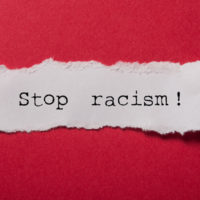Racial Harassment Is A Form Of Prohibited Race Discrimination

Under the Florida Civil Rights Act (“FCRA”) and Title VII of the Civil Rights Act of 1964 (“Title VII”), an individual is protected against discrimination with respect to his or her compensation, terms, conditions, or privileges of employment on the basis of race. Harassment of an employee because of his or her race which is sufficiently severe or pervasive to create a hostile work environment is a form of prohibited race discrimination. A recent case filed by the U.S. Equal Employment Opportunity Commission (“EEOC”), U.S. Equal Employment Opportunity Commission v. Lafontaine Cadillac, Buick, GMC, Inc., in the U.S. District Court, Eastern District of Michigan involved a claim of racial hostile work harassment under Title VII.
The EEOC filed the case on behalf of William Tyler (“Tyler”) against Lafontaine Cadillac, Buick, GMC, Inc. (“Lafontaine Cadillac”). The EEOC alleged that Tyler, who is African-American and worked as a detailer at the dealership, was subjected to racial harassment by a supervisor and co-employees. The alleged racially harassing behavior involved racial slurs and jokes, including calling Tyler the n-word behind his back. The EEOC further asserted that the employees racially harassed Tyler by assigning him the dirtiest and most time-consuming cars for detail work, and by sabotaging his work by making his assigned cars dirty again. The EEOC claimed that Lafontaine Cadillac was liable for the racially harassing behavior because the harassment continued despite Tyler’s complaints to management.
In a Consent Decree, which was signed by U.S. District Judge Arthur Tarnow on March 9, 2015, Lafontaine Cadillac agreed to pay Tyler $75,000 to resolve the case. Lafontaine Cadillac also agreed to provide on-going training to all of its officers, managers, supervisors, and human resources personnel on racial discrimination, racial harassment, and retaliation. The EEOC also required Lafontaine Cadillac to develop a new policy concerning racial harassment in the workplace, including the creation of a new complaint procedure for employees to report incidents of racial harassment.
The Lafontaine Cadillac case demonstrates that employees are protected by the FCRA and Title VII against racial harassment in the workplace. The Lafontaine Cadillac case also illustrates that the type of behavior creating a racial hostile work environment is not limited to remarks. Rather, any type of behavior which targets the victim for abuse, such as assigning the victim the most demanding or undesirable job duties, can be used to establish that the victim experienced a racially hostile work environment. The Lafontaine Cadillac case further establishes that racial slurs or racial jokes about the victim do not have to be made in the presence of the victim in order to create a racial hostile work environment. Instead, racial slurs or racial jokes about the victim not made in the presence of the victim, but the victim learns about during his or her employment, can be used to support a claim of racial hostile work environment harassment.
Although not at issue in the Lafontaine Cadillac case, it is not necessary that the victim be the direct target of target of other incidents of racial harassment, such as racial slurs or racial jokes, in order to use those incidents to support a claim of racial harassment. Rather, incidents of racial harassment directed at other individuals in the workplace, such as employees or customers, can be used to support a racial hostile work environment harassment claim. For example, when the employees engaging in the racial harassment make derogatory racial comments about another employee or customer in the presence of the victim, the victim is allowed to use those derogatory racial comments to establish that the victim experienced a racially hostile work environment. Such evidence is relevant because it can be used to establish that the victim worked in an environment where racial harassment was pervasive and management should have known about the racial harassment in the workplace.
We have extensive experience representing employees who have been the subjected to racial discrimination or harassment in the workplace. If you have questions regarding racial discrimination or harassment in the workplace, please contact our office for a free consultation. Located in Ocala, Florida, we represent employees in employment law matters throughout Central Florida, including Alachua County, Lake County, Levy County, Marion County, Orange County, Pinellas County, Sumter County, and Volusia County.


 Close Menu
Close Menu